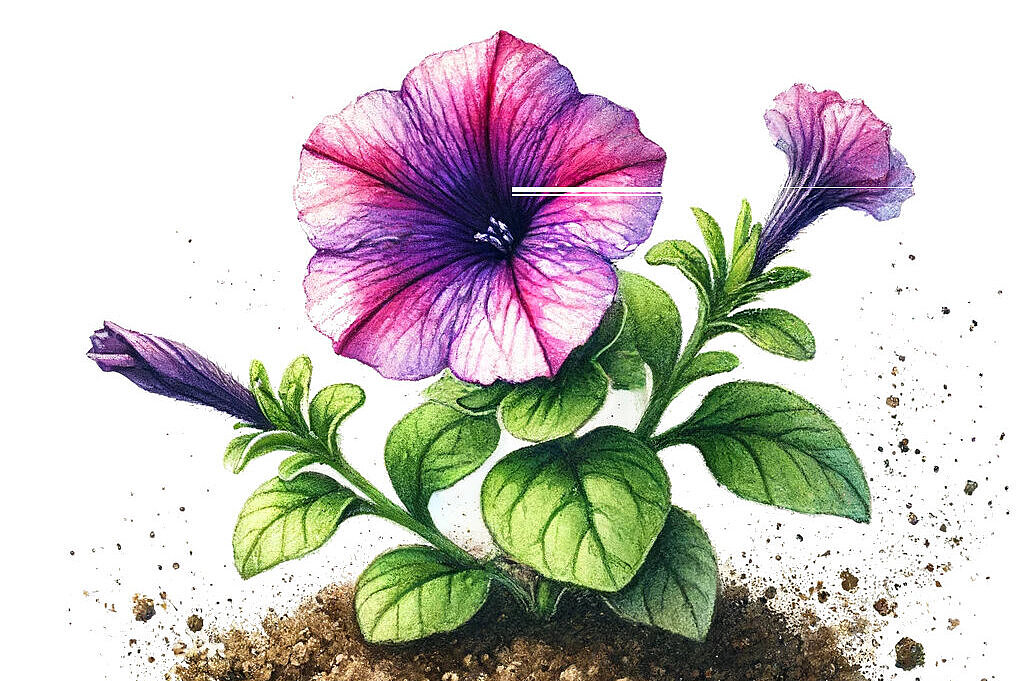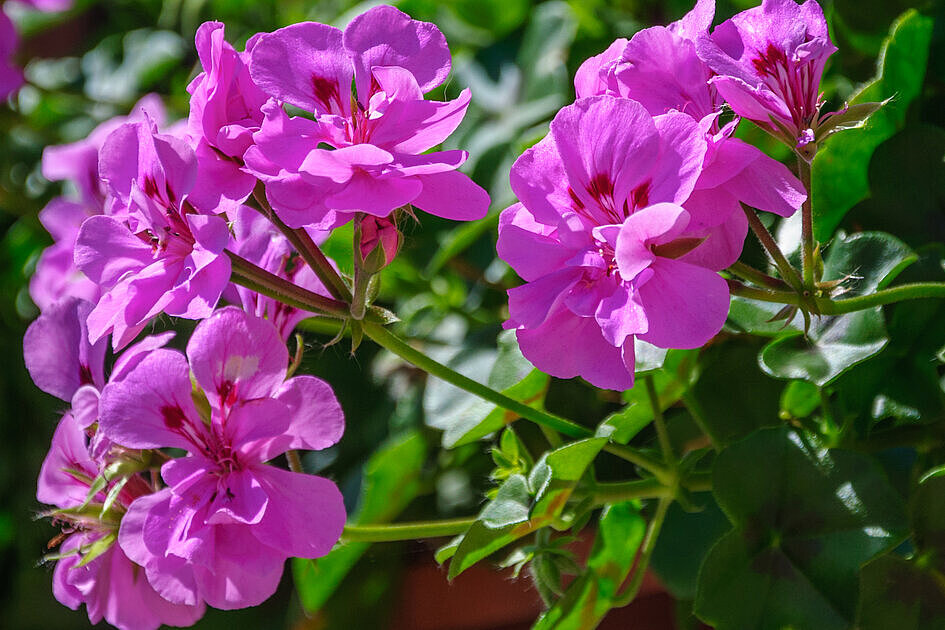Hard-working little girl

The lily of the valley, the epitome of summer color, adorns balconies, gardens and living spaces with its tireless abundance of flowers. But while it delights our eyes with its splendor, for dog owners the question arises: is the lily of the valley a safe choice for households where dogs also find a home? This article dives deep into the world of this popular plant to shed light on its properties, benefits and potential risks for our faithful four-legged friends.
What is the walleriana?
Impatiens walleriana belongs to the balsamine family (Balsaminaceae) and is best known for its long-lasting and colorful flowers, which delight the eye from spring until the first frost. Originally from East Africa, it has established itself worldwide in temperate climates thanks to its undemanding and robust nature. The plant presents itself in a variety of colors, including pink, red, purple and white, making it a popular choice for garden beds, hanging baskets and containers.
Advantages of the sweet pea around dogs
Colorful variety with no known toxicity
One of the great advantages of the sweet pea is that, according to current knowledge, it does not contain any toxic substances that could be harmful to dogs. This characteristic makes it a comparatively safe choice for gardens and homes where dogs live.
Stress reduction and aesthetic enrichment
The vibrant color palette and long-lasting blooms of the sweet pea can help create a pleasant and stress-reducing environment that benefits not only humans, but also their animal companions.
Disadvantages: Precautions for dog owners
Potential gastrointestinal irritation
Despite the lack of toxicity, dog owners should be cautious. As with many plants, ingesting large amounts of sweet pea can cause gastrointestinal irritation in dogs, characterized by symptoms such as vomiting or diarrhea.
Danger from pesticides
The greatest danger to dogs may not come directly from the plant, but from the pesticides used in its cultivation. These chemicals can be harmful to pets if they lick or eat the leaves or flowers.
Dealing with the sweet pea: A blooming garden, safe for your dog
To ensure that your garden or home is a safe environment for both your sweet pea and your dog, consider the following tips:
- Choose locations that are difficult for your dog to reach, especially if they are known to have a tendency to eat plants.
- Avoid the use of chemical pesticides or choose pet-friendly alternatives to minimize the risk of exposure.
A harmonious coexistence of flowers and paws
The lily of the valley offers a wonderful way to add color and life to your garden or home without posing a significant risk to your dog. With proper precautions, dog owners can enjoy the beauty of this plant while creating a safe and comfortable environment for their four-legged friends. The harmonious coexistence of plants and pets in our living space enriches our lives and those of our faithful companions.
If you notice any signs of hypersensitivity or poisoning in your dog, you should see your vet immediately. We are not a substitute for a vet, but we try to be as accurate as possible. Every dog reacts differently and we recommend you get a second opinion or consult your vet if in doubt.
Stay healthy and take good care of your four-legged friend!😊
Similar to Hard-working little girl
Begonias are members of the Begoniaceae family, an extensive genus of plants with over 1,800 different species. These plants vary greatly in size, leaf shape and flower color, making them a popular...
Petunias are among the most popular flowers for summer beds, balcony boxes and hanging baskets. They originate from South America and belong to the nightshade family (Solanaceae), which also...
Geranium is the colloquial name for a group of plants from the cranesbill family (Geraniaceae). There are more than 400 species of geranium found in different regions of the world. Most geraniums...
Periwinkle, also known as Vinca, belongs to the dogbane family(Apocynaceae). It is a genus of evergreen, ground-covering plants that are known for their ability to grow quickly and form dense...



